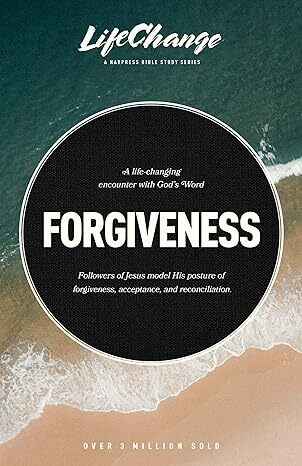Releasing Wrongs and Restoring Relationships
Have you ever wronged someone, apologized, but never received forgiveness? Or maybe you are on the other end, withholding forgiveness from someone who truly hurt you? Both represent a need for healing. Cassia Glass has gone deep in her studies on the Bible’s teaching of forgiveness and how important it is to apply to our lives. She is a writer, speaker, and cares deeply about drawing you closer to Christ. It’s a grace to welcome Cassia to the farm’s table today…
Guest Post by Cassia Glass
In 1947, Corrie ten Boom, a Dutch Christian who had been interred in Germany’s Ravensbrück concentration camp for hiding Jews from the Nazis, reentered the country where she had been brutally treated and her dear sister died. Her reason?
To tell Germans gathered at a Munich church about the God who forgives.
“When we confess our sins,” she declared, “God casts them into the deepest ocean, gone forever.”
As she prepared to leave the church, she recognized a face in the room: “I saw him, working his way forward against the others. One moment I saw the overcoat and the brown hat; the next, a blue uniform and a visored cap with its skull and crossbones”
“When we confess our sins,” she declared, “God casts them into the deepest ocean, gone forever.”
The man was her former guard from the concentration camp.
“‘I have become a Christian,’ he said. ‘I know that God has forgiven me for the cruel things I did there, but I would like to hear it from your lips as well. Fräulein, will you forgive me?’”
Corrie recounted, “I wrestled with the most difficult thing I had ever had to do. For I had to do it—I knew that.
The message that God forgives has a prior condition: that we forgive those who have injured us. ‘If you do not forgive men their trespasses,’ Jesus says, ‘neither will your Father in heaven forgive your trespasses.’”
Corrie realized in that moment that she could call on Jesus to help her forgive: to make a choice, a decision to follow the One who called her, rather than to respond out of emotion. She took the man’s outstretched hand, and, as she later recounted, “This healing warmth seemed to flood my whole being, bringing tears to my eyes.” She was able to forgive him with her whole heart.







“We may believe in theory that we should forgive others when they sin against us, but the gulf between theory and application widens as we feel the weight of the harm.“
Corrie’s dilemma is ours: We may believe in theory that we should forgive others when they sin against us, but the gulf between theory and application widens as we feel the weight of the harm. Just as Jesus did not gloss over the very real relational debts caused by sin, He also did not give us a free pass on extending forgiveness to those who have hurt us.
Peter, like all of us, wanted to know where the loopholes might be and if there was an expiration date on extending forgiveness. “Is seven times enough?” asked Peter, but Jesus not only offered an extravagantly higher number of seventy times seven but painted a picture of forgiveness so immense that it reframed the discussion entirely.
In the parable that followed Peter’s question, Jesus painted the picture of a king who “wanted to settle accounts with his servants”—using it as metaphor for the ways in which human sin has racked up tremendous relational debt with the King of Kings and prompts an honest acknowledgement of the cost of sin that must be paid in some way.
But that’s where Jesus inserted the plot twist to show the immense mercy of God- “At this the servant fell on his knees before him. “Be patient with me,” he begged, “and I will pay back everything.” The servant’s master took pity on him, canceled the debt, and let him go (Matthew 18:24-27).”
Jesus’ audience would have understood a well-known cultural practice and principle here. When poor crops or other circumstances forced a ruler to forgive taxes, he did so with the understanding that his people would respect his benevolence. If he released his subordinate ministers’ debts, they in turn must release the debts of those indebted to them.
“Jesus not only offered an extravagantly higher number of seventy times seven but painted a picture of forgiveness so immense that it reframed the discussion entirely.“
However, the forgiven man who, instead of being humbled and transformed by the immense sacrifice of a king who took on the full debt himself, snubbed the king’s gift. He reacted in fury over a small debt from a fellow servant, throwing him into debtor’s prison.
The parable shows the ripple effect of unforgiveness and unchecked anger. The fellow servants in the parable took notice of the first man’s actions and “outraged, went and told their master everything that had happened” (18:31). The larger community was bruised and had their righteous anger kindled by the first man’s wrathful unforgiveness.
That man sought restitution with a vengeance instead of moving toward mercy and forgiveness, and it harmed the community by breaking a principle of graciousness established by the king.
When the king in the parable justly revoked his earlier pardon, consigning the unforgiving man to debtor’s prison to be “tortured until he should pay back all he owed” (18:34), Jesus was warning his audience and us not to trespass on God’s gracious forgiveness but also reminding us that we exist within a community whose wholeness and peace matter to God.





We honor God in the communities where we lead when we help others to see the twin truths of this passage—that while we are not to ignore or downplay wrongdoing, and indeed honest anger can help reveal the cost of sin, we are also not to withhold forgiveness from our “fellow servants” since we have been forgiven an enormous debt by God.
“There is no promise from Scripture that forgiveness is easy, but it is the path forward to healing.“
There is no promise from Scripture that forgiveness is easy, but it is the path forward to healing.
By the standards of this world Corrie had every right to refuse to forgive her former prison guard. And yet, she remembered to call upon Jesus to help her forgive in that difficult moment. The healing for her was immediate; the healing that rippled out into the community was done one brave, merciful decision at a time.
Lord, may we remember to call upon our savior when it is hard to forgive; when it is hard to see someone who has hurt us as a “fellow servant”.
King of Kings, thank you for the forgiveness you have shown us. May we show a fraction of that mercy to others. Thank you for your son, who stands ready to give us His strength and fill us with the healing power of forgiveness.

Keep reading and learning with Cassia in her Lifechange Bible Study- Forgiveness: A Bible Study on Releasing Wrongs and Restoring Relationships. This small-group study traces the concept across both the Old and New Testaments to reveal the God who forgives and empowers us to forgive others. Lifechange Bible studies have sold over 3 million copies and cover every book of the Bible and important topics. They train you in good Bible study practices as you enjoy an engaging study of Scripture.
Cassia Glass is the small groups and discipleship director at Faithbridge Church in northwest Houston. She is also a retreat speaker and writer, and holds a master’s degree in church history and theology. She and husband McLeod are happy empty nesters with two young adult children. For more on faith, family, and finding purpose visit her at cassiaglass.com.
{Our humble thanks to NavPress for their partnership in today’s devotional.}
Ann Voskamp's Blog
- Ann Voskamp's profile
- 1368 followers



